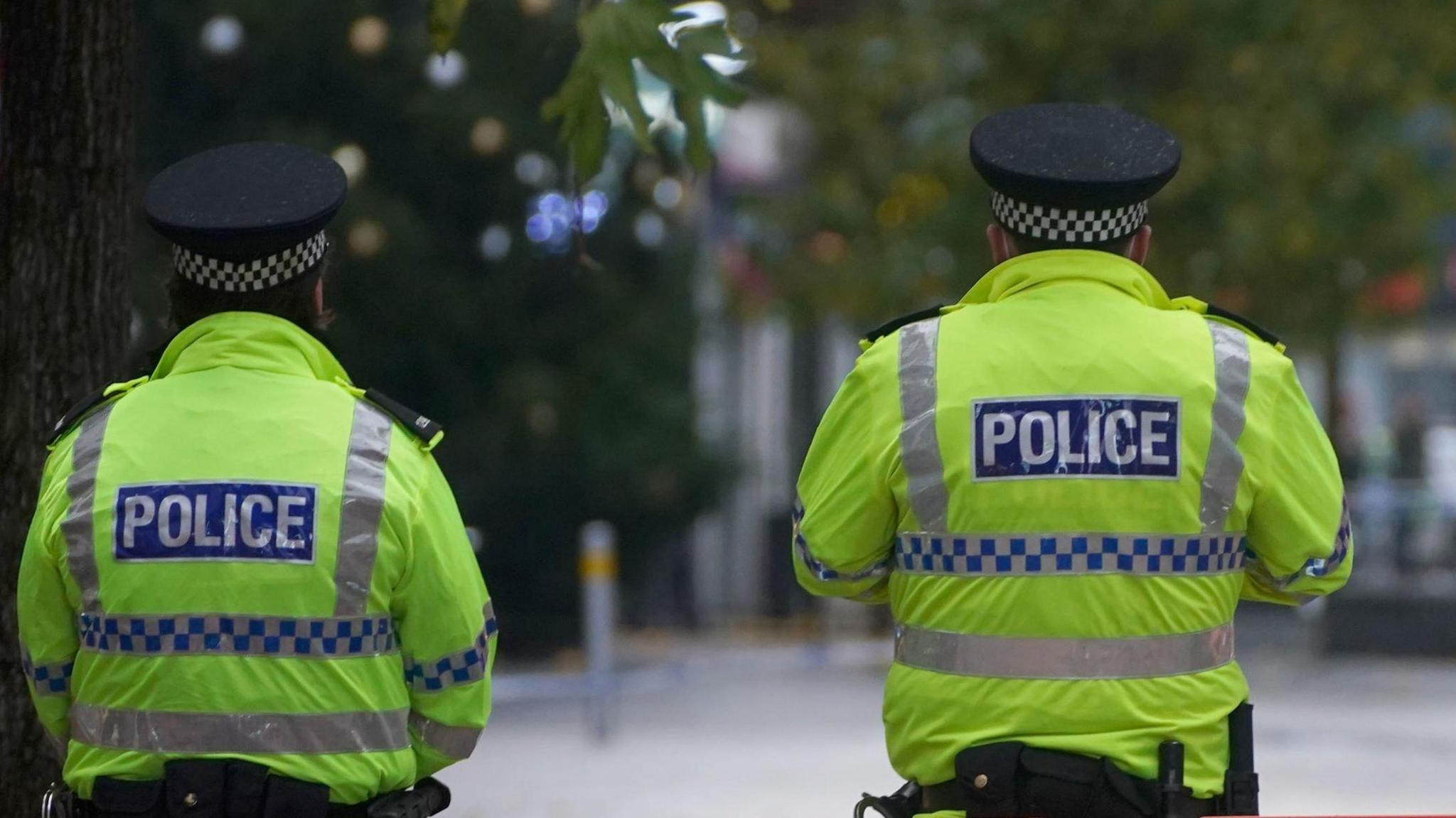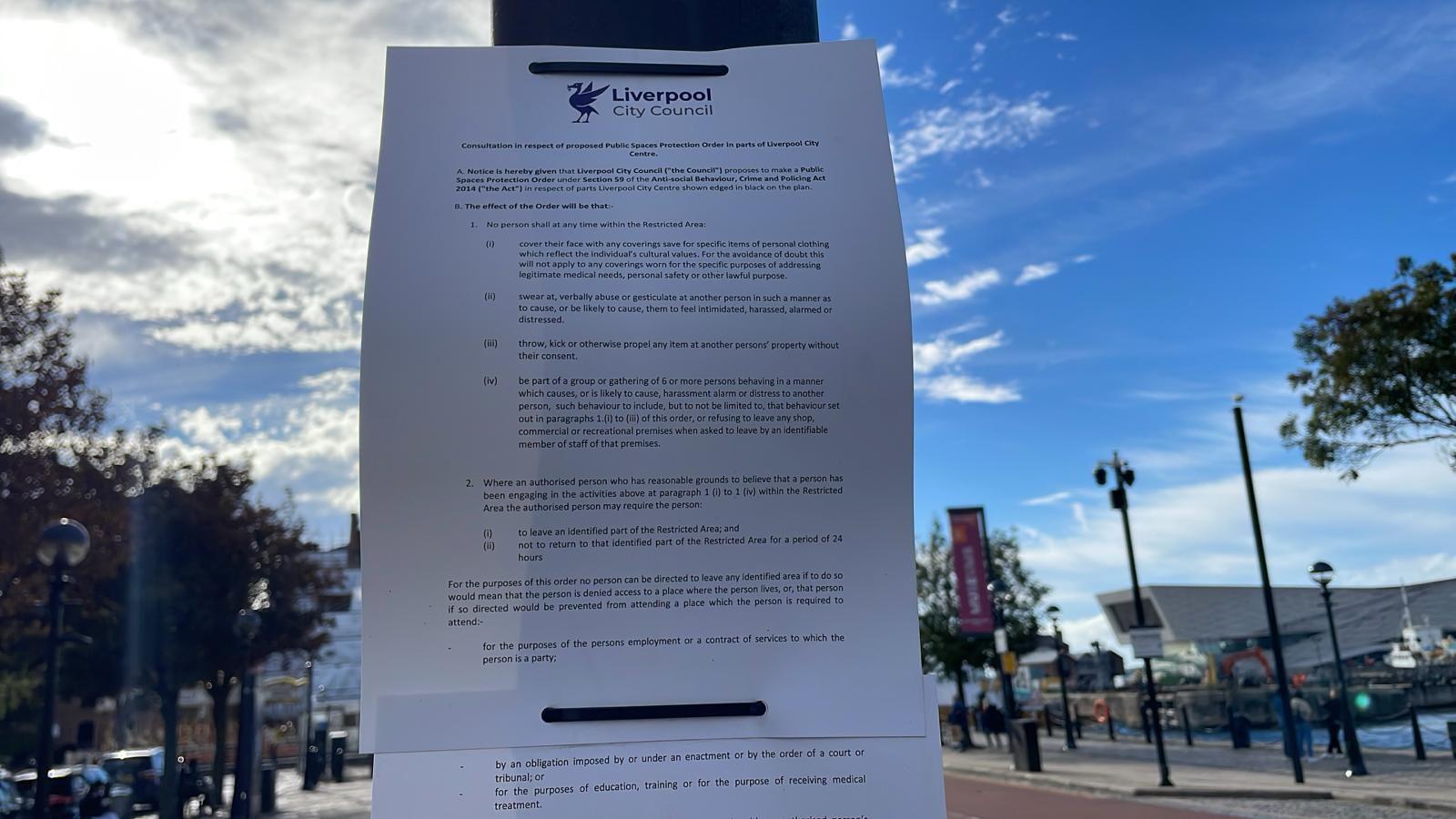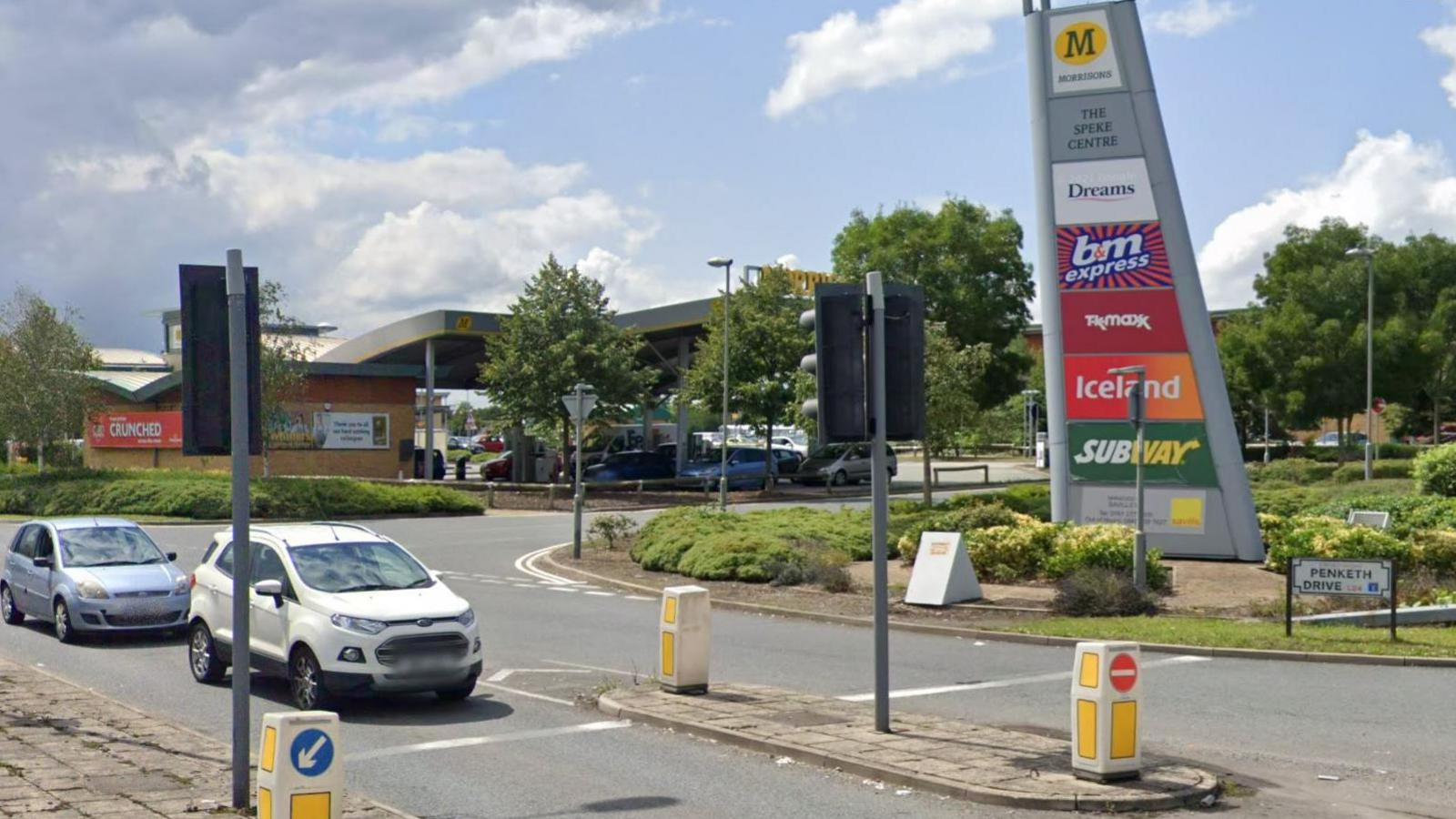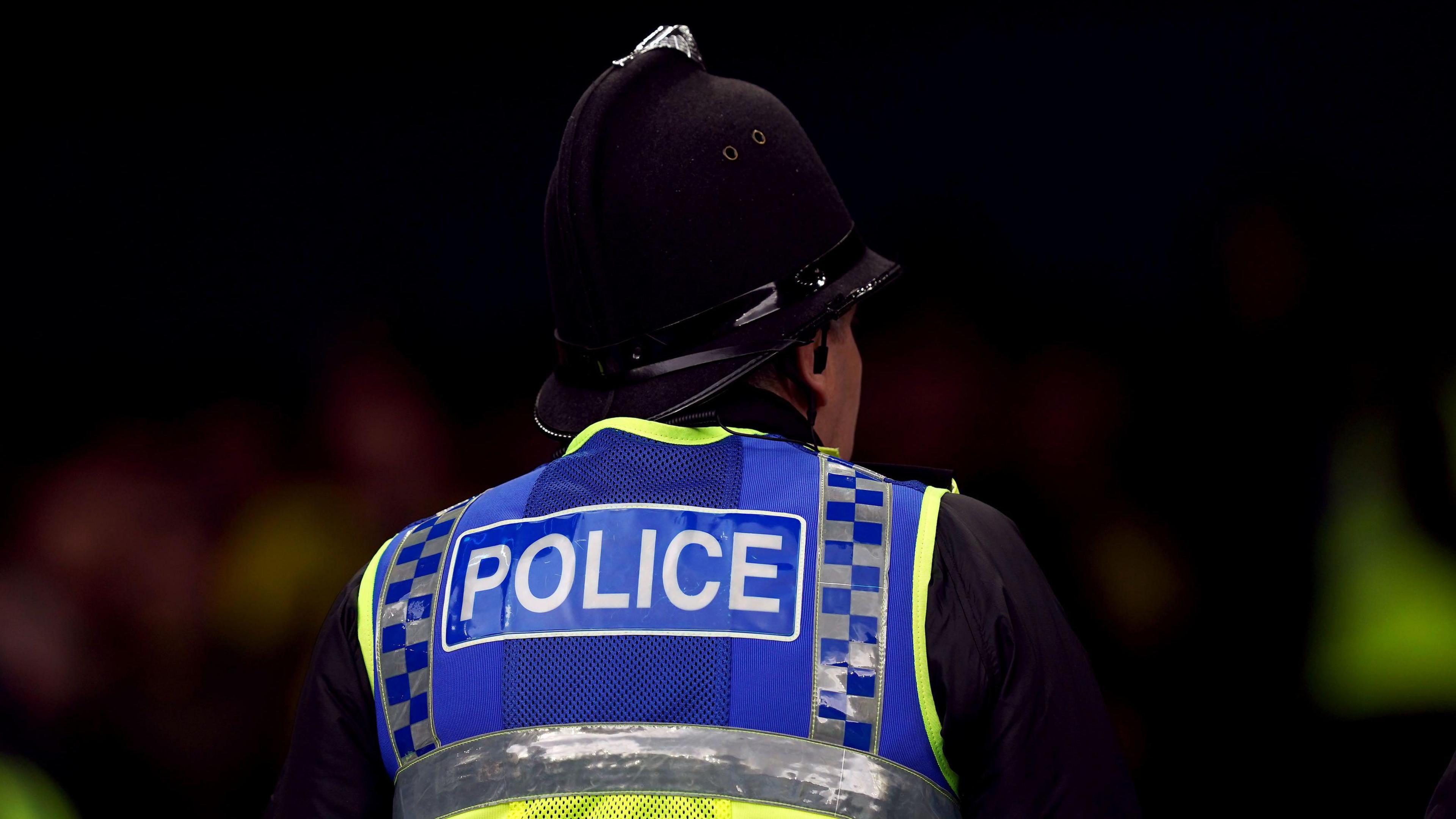Swearing and wearing masks could mean £1,000 fine

A range of powers could be brought in to tackle antisocial behaviour in Liverpool City Centre
- Published
Swearing, wearing masks and gathering in groups of more than six could land people with £1,000 fines under new powers being sought by police and city leaders.
Liverpool City Council and Merseyside Police want to apply the rules across most of the city centre.
They said the plans were not an attempt to limit people's right to peaceful protest, but were aimed at tackling problem behaviour from a "small minority".
The new rules would be in place for at up to two years before being reviewed, Merseyside Police and Crime Commissioner Emily Spurrell said.
Liverpool City Council said the Public Space Protection Order (PSPO) came in response to complaints from shopkeepers, members of the public and tourists.
But it said it believed some incidents were not being reported because of "fear of retribution" if people were seen to be "engaging with authorities".
CCTV footage showed people causing trouble had used masks and face coverings to hide their identities, the authority added.
Emily Spurrell Merseyside Police and Crime Commissioner
Under the new powers, people will not be allowed to "cover their face with any coverings save for specific items of personal clothing which reflect the individual's cultural values".
"For the avoidance of doubt this will not apply to any coverings worn for the specific purposes of addressing legitimate medical needs, personal safety or other lawful purpose," according to the draft of the order.
It will also become an offence to "swear at, verbally abuse or gesticulate at another person in such a manner as to cause, or be likely to cause, them to feel intimidated, harassed, alarmed or distressed" and to "throw, kick or otherwise propel any item at another persons' property without their consent".
Also banned would be to "be part of a group or gathering of six or more persons behaving in a manner which causes, or is likely to cause, harassment alarm or distress to another person", and "refusing to leave any shop, commercial or recreational premises when asked to leave by an identifiable member of staff of that premises".
Anyone breaking the rules could be "liable on conviction to a fine" of up to £1,000, or a fixed penalty notice.

Police would have new powers such as banning people from an area for "causing alarm and distress"
Police and Crime Commissioner Spurrell said the order was not meant to "demonise" teenagers, and that it had been teenagers who had raised complaints about safety in the city centre with the police and council.
She rejected the suggestion that the order was a "sledgehammer to crack a nut".
"It's not us saying we're going to split-up every group of six we see," she told BBC Radio Merseyside.
"This is about making it clear that that type of behaviour won't be tolerated and the police have the ability to move a group on if they continue doing it after they've been asked to stop."
'Won't be tolerated'
City centre Labour councillor Nick Small said anti-social behaviour was affecting the lives of the people in the city centre ward he represents.
He said: "Most young people who are in the city centre are there doing absolutely nothing wrong - they have got nothing to worry about on this."
He said the police wanted more powers to tackle the "small minority".
He said there had been focused work with young people over the summer, and the feedback had been that many didn't want to come into the city centre because they were being abused and intimidated by others.
He said the council and police were investing in youth services across the city but that youth workers alone couldn't address the severity of the problem.
The order would cover William Brown Street, London Road, Seymour Street, Russell Street, Clarence Street, Rodney Street, Upper Duke Street, Great George Street, Nelson Street, Bridgewater Street, Chaloner Street, Queens Wharf, Kings Parade, Mann Island, George Parade, St. Nicholas Place, Chapel Street, Tithebarn Street, Great Crosshall Street and Byrom Street.
A consultation on the plan runs until the end of September.
Get in touch
Tell us which stories we should cover on Merseyside
Listen to the best of BBC Radio Merseyside on Sounds and follow BBC Merseyside on Facebook, external, X, external, and Instagram, external. You can also send story ideas via Whatsapp to 0808 100 2230.
Related topics
- Published14 March

- Published13 May 2024
